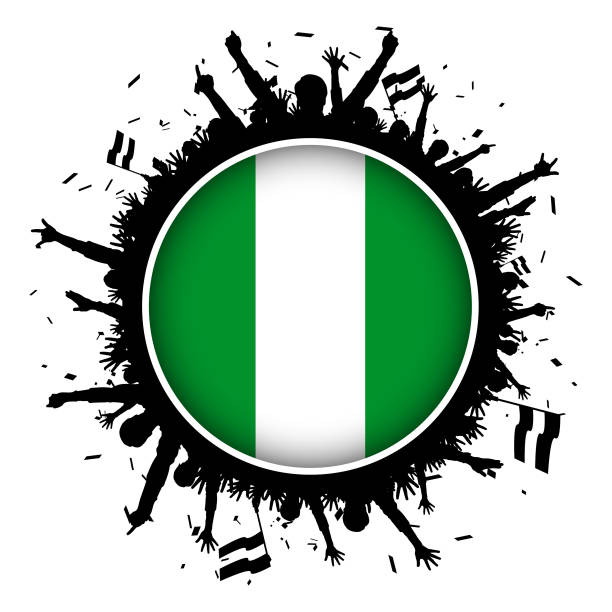Football is the most popular sport in Nigeria.
The Nigeria national football team competes regularly for international titles and many Nigerian footballers compete in Europe, particularly in England.
Nigeria has one of the finest national teams in Africa and has produced many notable footballers including Mudashiru Lawal, Rashidi Yekini, Jay Jay Okocha, Nwankwo Kanu, Vincent Enyeama, Joseph Yobo, John Obi Mikel, Kelechi Iheanacho, Wilfred Ndidi, Ahmed Musa and Victor Osimhen, among others.
Football was first played in Nigeria in 1904. It has a 3-tier national football league system that follows a pyramid structure of promotion and relegation.
Leagues
Nigerian Professional Football League (NPFL)
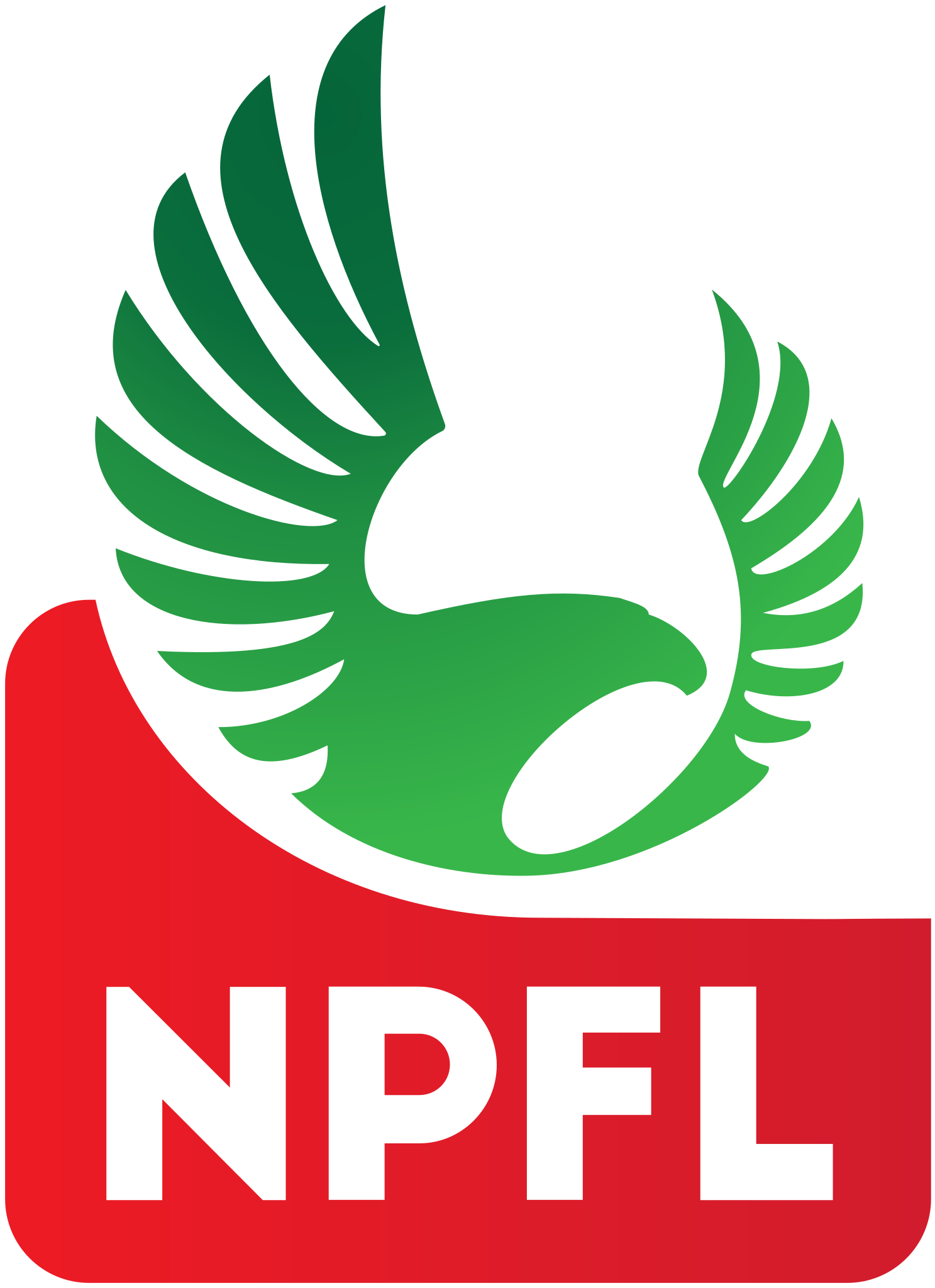 The Nigeria Premier League is the first division of club football in Nigeria. It features 20 of the best teams in the country. The bottom 4 teams get relegated to the second division at the end of the season.
The Nigeria Premier League is the first division of club football in Nigeria. It features 20 of the best teams in the country. The bottom 4 teams get relegated to the second division at the end of the season.
The Nigeria Professional Football League (NPFL) is the highest level of the Nigerian football league system, for the Nigerian Club-football Championships.
The Nigerian top-division has experienced dwindling fortunes since the late 2000s. It is fed into by the Nigeria National League (NNL). It is organised by the League Management Company (LMC).
The NFF created the Nigeria Premier League, organized by the Nigeria Football League in 1990 as a step in attaining full professionalism as the sole regulatory for football in Nigeria. At the Onikan Stadium on 12 May 1990, the league was given a name as it was then known as the ‘Professional League’.
However in November 2012 with the agreement and support of the National Sports Commission, Nigeria’s sports regulatory authority, the NFF constituted an Interim Management Committee (IMC) for the League as part of measures to avert a total collapse of the top tier professional League following the downfall of the Nigeria Football League (NFL) which arose from difficult legal and administrative impediments.
The IMC supervised the formation and incorporation of the LMC to run a transparent and commercially viable professional league.
Enyimba is the most successful football club in Nigeria.
Nigeria National League
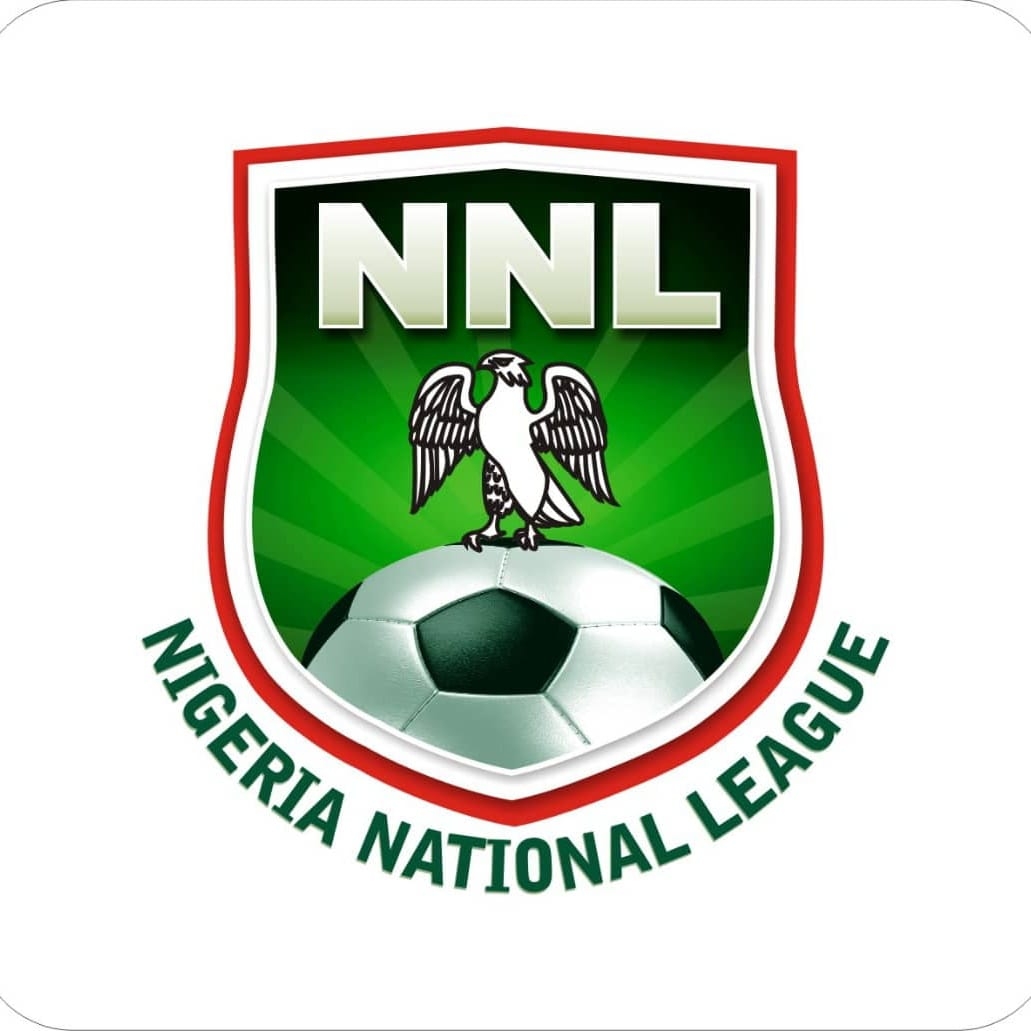 The second division of Nigerian football features 42 teams.
The second division of Nigerian football features 42 teams.
The top 4 get promoted to the Nigeria Premier League for the following season whereas the bottom 6 get relegated to the National Nationwide League.
The Nigeria National League (formerly known as National Division 1) is the second tier of club football in Nigeria.
From 1997-2011, the league has been split into 1A for Northern teams and 1B for southern teams. The top two from each division are promoted to the Nigerian Premier League the next season.
The exceptions were the 2005-06 and 2006-07 seasons where there were four divisions of eight teams each, with each division winner winning promotion.
Up to four teams in each division are relegated each season to the Amateur First Division. The league was renamed 19 June 2008.
In 2012, the league expanded from 32 to 36 teams with 2 more teams promoted. The league used the 2006 format, with four divisions of nine teams each, with division winners receiving automatic promotion.
In 2012-13, it went back to two divisions of sixteen. For the 2015 season, it used four divisions of eight teams.
On 6 November 2020, the league’s organizing committee agreed to continue the four division North and South format for the 2021 season.
National Nationwide League
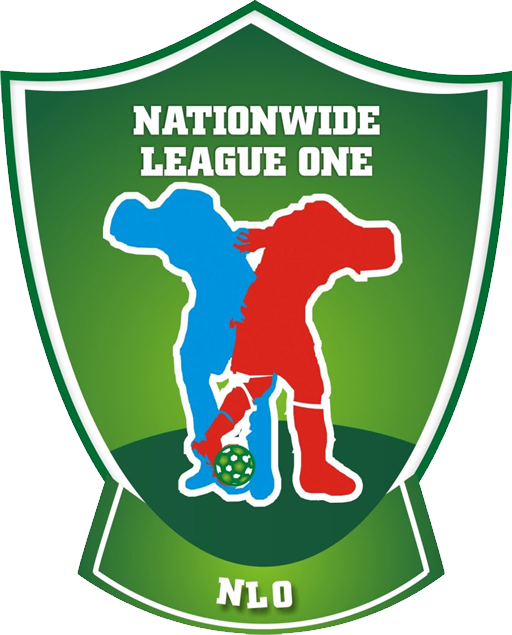 The third and final division in the professional Nigerian football league system is the National Nationwide League.
The third and final division in the professional Nigerian football league system is the National Nationwide League.
This features 40 teams with 6 getting promoted to the second division while 8 get relegated out of the major Nigerian leagues to the Nigerian Nationwide League Division 2.
Teams that finish in the last few spots on this move even lower to the third division of the Nationwide League.
National Nationwide League Division One (formerly called Nigerian Amateur League) is the third level of club football in Nigeria. Every year, up to eight teams are promoted to the Professional Division One.
Starting in 2012, the league changed its name from the Amateur League and will promote three teams per division instead of two. This was after a long delay in confirming promotions from the prior year due to teams’ protests.
As the “largest grassroots league in the world”, promotion and relegation are not guaranteed. Most of the teams are sponsored by private citizens or Local Govt. Areas and funding at this level is minimal.
Any team eligible to move to the National Division 1 must qualify for a Professional League license and commit to the increased spending.
After the 2007/08 season Dankalat FC of Kano won promotion, but instead sold their slot in Division 1A to Calabar Rovers. (Dankalat would eventually sell their slot in the 2012 Professional League to Nembe City FC).
For the 2013 season, FC Ebedei and Makwada remained in the Nationwide League and sold their promotion slots after winning their divisions. Bolowotan, who also won promotion, sold their slot after 9 games at the professional level.
After the 2016 season, the league doubled in size to 80 teams. Teams will play in five-team divisions, with the winner of each division playing the corresponding Group for the one promotion slot.
The 2019/20 season was cancelled and affected by the Covid-19 that forced all activities to a stop. Hence, no promotion or relegation of teams.
Nigeria Amateur League Division Two
The Nigerian Nationwide League Division Two (2) is the fourth level of club football in Nigeria, and the middle of the three Nationwide league divisions.
It is divided into eight groups by geography with five to eight teams each.
Every year, up to eight teams (the section champions) are promoted to the Nationwide Division One.
Nigerian Nationwide League Division Three
This is the fifth tier of football in Nigeria that features amateur teams.
Cups
Nigerian FA Cup/Federation Cup (now, AITEO Cup)
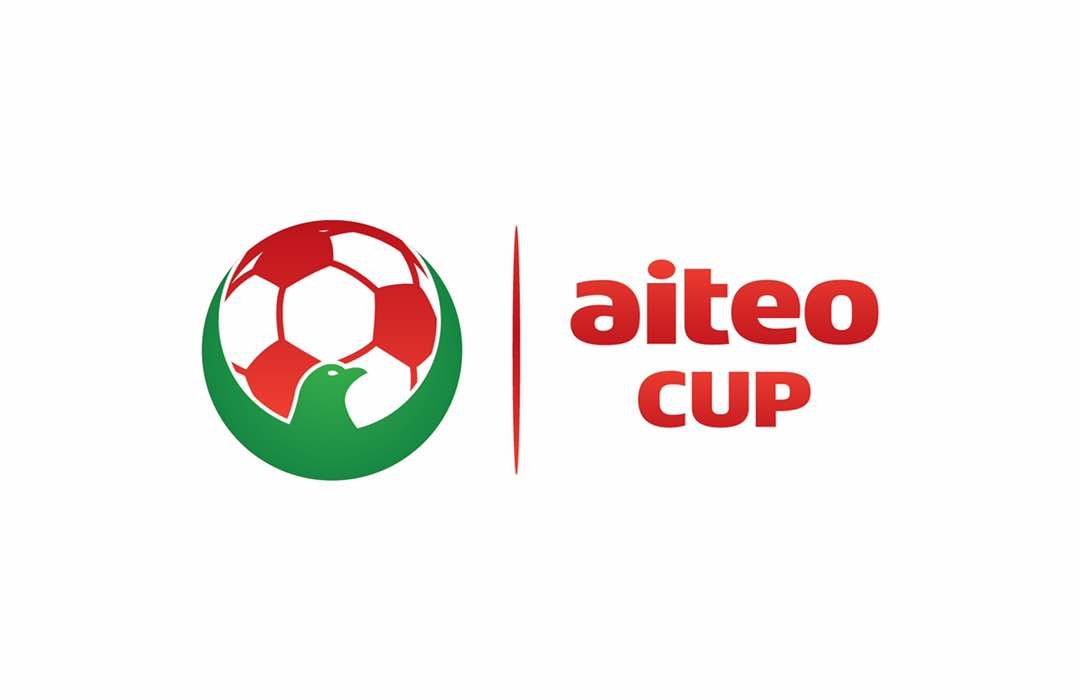 The AITEO Cup is Nigeria’s biggest knockout cup competition. It features 74 teams from the 36 states and the Federal Capital Territory-Abuja.
The AITEO Cup is Nigeria’s biggest knockout cup competition. It features 74 teams from the 36 states and the Federal Capital Territory-Abuja.
The clubs that make the finals of their state cup championships qualify for the cup.
The winner of this cup gets to participate in the Nigeria Super Cup against the winner of the Nigerian Premier League and secures automatic qualification for the CAF Confederation Cup.
The AITEO Cup (a.k.a. Challenge Cup, sometimes shortened to Fed Cup), is the main football single-elimination tournament in Nigeria contested by 74 teams, representing the 36 states + 1 FCT of Nigeria.
It is the Nigerian domestic cup and the Nigerian equivalent of the FA Cup, Emperor’s Cup, Copa do Brasil, Coupe de France, among others.
It was created in 1945 as the “Governor’s Cup”, succeeding the War Memorial Challenge Cup that had been limited to teams from Lagos.
The tournament was created in 1945 as the Governor’s Cup and was initially dominated by Lagosian teams, later it was known as the Nigeria FA Cup from (1954–1959), Nigeria Challenge Cup (1960–1998), Coca-Cola FA Cup (1999–2008) and Nigeria Federation Cup (2009–2016).
Since 2017, the competition has been sponsored by the AITEO group and has been known as the AITEO Cup including the women’s tournament.
Shooting Stars are the most successful clubs, having won the competition eight times.
The competition is a single-elimination knockout tournament featuring 74 teams from the 36 states + 1 FCT in Nigeria.
All clubs qualify via their states cup championships, the winners and runners-up of each state cup championship qualify for the tournament regardless of their position in the Nigerian football league system.
A ‘Rookie’ play-off will be held for the 20 lowest ranked clubs, the 10 winners then join the remaining 54 at the first round. All matches are held at neutral venues.
The winner qualifies automatically for the next season’s CAF Confederation Cup or the runners-up if the winner had already qualified for a CAF club competition based on the league position.
Nigeria Super Cup (Charity Cup or Charity Shield)
The winner of this match is awarded the Super Cup.
The winner of the Nigerian Premier League goes up against the winner of the FA Cup.
Super 4
The Nigeria Super 4 is a preseason competition that features the 4 teams that have qualified for the CAF Champions League and CAF Confederation Cup every year.
The Nigeria Super 4 is an annual preseason competition that involves teams that will be representing Nigeria in CAF Champions League and CAF Confederations Cup.
The teams to participate are normally the first and second positions from the FA Cup and Nigerian Premier League, although age-grade national teams have also competed once in the past.
Four teams usually compete, hence it is called the “Super 4”.

